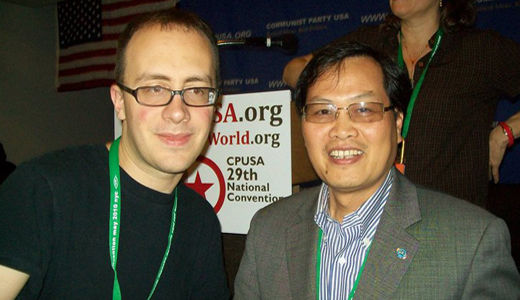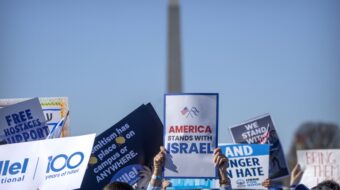
I never had the chance to meet Danny Manzaro, my father’s best friend and whose name I bear. Manzaro, a corporal in the 3rd battalion, 7th Marines, killed at age 21 in what is now Quang Nam province in the U.S. aggression against Vietnam. He should have been home when the bullet took his life, but he was still fighting in Vietnam; his tour of duty had been extended.
My father, of course, was devastated when he learned of the loss of his friend. He didn’t serve in that war, because of a trick knee. He felt, perhaps still feels, a sense of guilt over this. Though he harbored no resentment against the Vietnamese, he didn’t feel that it was right that so many of his friends were dying overseas while he was stateside (though, of course, my family was and is glad his knee wasn’t up to military par). The loss of his best friend only compounded the guilt.
Though Manzaro was killed well before I was born in 1976, some of my earliest memories involve him. I remember my father showing me, as a child, the last letters Manzaro had sent. The brightly colored envelopes had “air mail” written repeatedly in human script on their front and back. I was told that the soldiers fighting were so desperate to keep in touch with friends and family back home that they went to great lengths to ensure that letters sent were received. A few years later, in the early 1980s, a moving Vietnam War memorial came through Worcester, Massachusetts, my hometown. My family went downtown and found Danny’s name written on it.
The way the war was taught to me as a child was abstract: there were battles and they were particularly violent. Innocent people were being killed everywhere. But what the war was about really was never entirely clear. Perhaps no one in the family was really sure. There were two sides, but I had no idea what each side stood for. Back then, I never thought to ask. The war was a fact, as is water and the sky, and there seemed to be no reason to question why it was there.
In one of those strange twists of fate, this past weekend, 35 years after the end of that horrible war, which we all now know was a vicious attack by U.S. imperialism on a nation simply trying to free itself from colonial chains, I escorted Vietnam’s deputy ambassador to the United States around the 29th Convention of the Communist Party USA.
When he was a child, Ambassador Minh T. Nguyen had to leave his village several times because of American air raids, and he surely knew many people, friends, who were killed in the atrocities. Yet here he is today, in the United States, bringing and advocating friendship and always better ties. In private, and in reading official greetings from the Communist Party of Vietnam, he spoke not about the horrors that the U.S. imposed on his country, but of pushing forward and building closer friendship between not just our two parties, but the whole of the American and the Vietnamese peoples.
What he said is wholly representative of today’s Vietnam. In fact, while the fight against U.S. imperialism was heroic and inspiring, Vietnam’s leadership in the push for peace and solidarity-and forgiveness-is no less inspiring or heroic.
While working to build their socialist society and to develop the country, they have eschewed the anti-U.S. rhetoric of a number of states that have been in conflict with the U.S. Instead, they’ve chosen the path of cooperation and, in the 1990s, the two nations normalized relations to such an extent that trade between Vietnam and the U.S. is now equal to trade between Vietnam and China.
Our two nations never should have been enemies. The Vietnamese resistance fighters, including and especially Ho Chi Minh, born 120 years ago, drew inspiration from the ideals of the American Revolution. In fact, 65 years ago, Ho Chi Minh declared Vietnam’s independence, opening his speech with the second paragraph of our own Declaration of Independence.
While the Communist Party USA’s National Convention was going on, tens of thousands of U.S. veterans of the war gathered in Lambeau Stadium in Green Bay. The main message on display was simple: war is hell. This is something to which both the Vietnamese people and American soldiers can attest.
Animosities are now fading into the past, and it is to the great credit of the Vietnamese people that they are actively working to bury them for good. We in the U.S. should continue to take up this cause of friendship and peace.We can start by working to ensure that our government does its part in aiding all the victims of Agent Orange, Vietnamese and American.
Photo: Dan Margolis stands with Mr. Nguyen, deputy ambassador of Vietnam to the United States. (PW)

MOST POPULAR TODAY

Zionist organizations leading campaign to stop ceasefire resolutions in D.C. area

High Court essentially bans demonstrations, freedom of assembly in Deep South


Afghanistan’s socialist years: The promising future killed off by U.S. imperialism

Communist Karol Cariola elected president of Chile’s legislature






Comments